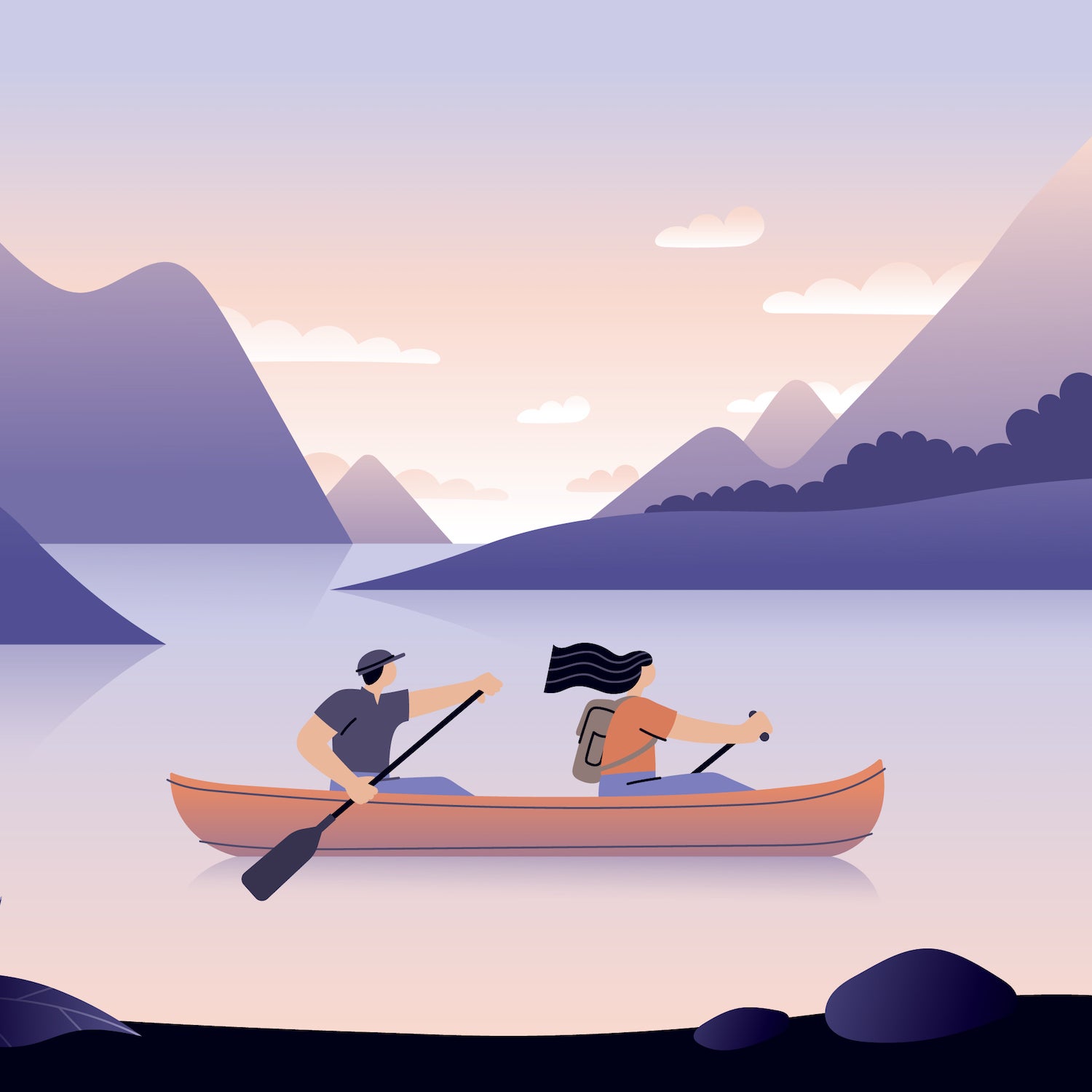In my early twenties I was convinced that I’d never be lonely if I could make other people love the things I love, which is why I became a nature guide (and also a writer). Though I no longer believe this to be particularly true—I’ve moved on to other fallacies—I still consider it an incredible privilege when people trust me enough to lead them in something new outdoors. It’s also a role that comes with responsibility: how you introduce people to the outdoors plays a huge part in whether they feel comfortable, welcome, and like they belong. So let’s say your friend mentions that they’d like to try hiking—o�� camping, or kayaking, or any number of outdoorsy things that can be daunting to newbies—and asks if you’ll bring them along. Hooray! How do you make sure the experience is positive? Here are some tips for helping friends or loved ones (of all ages) feel like this whole outdoors thing might be for them, too.
Over-Anticipate Physical Needs
Before you go, let your friend(s) know what to wear and why: “I’d bring long pants because of bugs, and we should wear hats and long-sleeve shirts.” If they don’t have the right equipment or clothing, lend them some or let them know where to get it. Pack extra sunscreen, water, food, and bug repellent, plus anything else they might forget. And if there’s a handy place to use the bathroom—o�� you’re about to go somewhere without a bathroom—let them know ahead of time. A lot of people can be shy about stating their needs (especially bathroom-related needs), so they may be more comfortable speaking up or asking questions if you introduce the topic first.
Put Aside Your Own Expectations
Every trip should be tailored to the level of the person with the least experience (or the most limitations). That means asking what they’re up for, checking in throughout the day, and being open to changing plans. If there’s a cool waterfall up the trail that you’ve been dying to see, but your friend is tired, it’s time to turn around. If you wanted to go swimming in a lake but they’re psyched about watching herons from the shore, pull out your binoculars and join them, at least for a while. Odds are that the day won’t be quite like you expected, but with the right attitude, that’s an upside all around. Your friend had a blast, and felt respected, and you got to experience a place or activity you love through fresh eyes.
Clear the Plan Ahead of Time
Of course, as much as you might want to be flexible, many outdoor trips require some level of commitment. If you go backpacking, for instance, and someone decides they hate it, they can’t just snap their fingers and be done. In these cases, the most important thing is to communicate ahead of time, explaining the whole situation, so that people can choose whether or not to participate. For instance: “Hey, if you come on this canoe trip, we’re going to be gone about six hours, and someone’s picking us up so we can’t really head back early. We’ll be in the sun the whole time, so we need to stay hydrated, and there won’t be bathrooms. Does that sound like something you want to do, or would you rather start with something shorter?” Someone could still get tired or nervous partway through—it happens to the best of us—but at least they’ll have made their own decision.
Give Them a Role
If someone’s a total newbie, then they’re already learning a ton just by being out there. But if your friend has some experience, or wants a bit more responsibility, you can give them a designated task that will be theirs throughout the trip. For instance, they might be in charge of navigating, cooking, or finding water. As they gain confidence and experience, they’ll be ready to take on more and more.
Distinguish Between Encouragement and Pressure
This one can seem tricky, because there are a lot of situations outdoors when people really appreciate encouragement—and there are also situations when it’s extremely annoying (or worse) to keep “encouraging” someone to do something they don’t want to do.
Unless you’re specifically averting an emergency, never put someone’s body in a situation they don’t want to be in. For instance, if you’re steering a boat, and they say “Don’t take us over there,” it’s super messed up to bring the boat (and their body) to the place they don’t want to go. If they’re riding your snowmobile, and ask you to please drive slowly, there is no world in which it’s funny to accelerate. If they’ve been standing at the edge of a cliff for an hour, trying to get up the nerve to jump into a river, do not give them a gentle push. Maybe you think that they’ll actually love the experience, and you’re trying to show them that. Maybe you think that you’re helping them. It doesn’t matter. Period. Don’t do it.
If you believe your friend will genuinely enjoy something they’re unsure about, just tell them. “I think if we take the boat over to those waves, you’ll have fun, and it’s very safe. You’re wearing a life jacket, and even if you fall out, the water is shallow enough to stand in. Do you want to give it a try?” Make the case, and provide the information. If they say no, respect their decision—cheerfully. They’re already pushing their comfort zone by coming out with you, and it’s vital to be a good steward of that trust.
If you’re ever in doubt about the line between encouragement and pressure, you can ask. “In all seriousness, do you want me to encourage you to [cliff jump/touch a bug/drive a dogsled]?” A nervous friend might really appreciate your cheerleading—as long as the choice is theirs.
Take Photos
It’s a not-so-secret among guides that they get better tips when they take lots of pictures for their guests. The reason is simple: everyone loves looking back on their adventure. But people can’t necessarily take great photos of themselves (or may feel awkward asking for them). Stay a few steps ahead by taking plenty of action shots, and stopping often at photo ops along the way.
End on a Good Note
Fatigue can have a steep drop-off, meaning that someone can be having a great time, and then they get tired quickly, and continuing to do the activity at that point begins to feel like a chore or worse. So try to end on a good note, and if people are having fun, resist the urge to extend the trip for longer. Remember that even if the excursion felt simple to you, it’s a big deal to them—so send over the photos you took, and celebrate their accomplishment. And let them know that if they want to go out again, you’re there.


